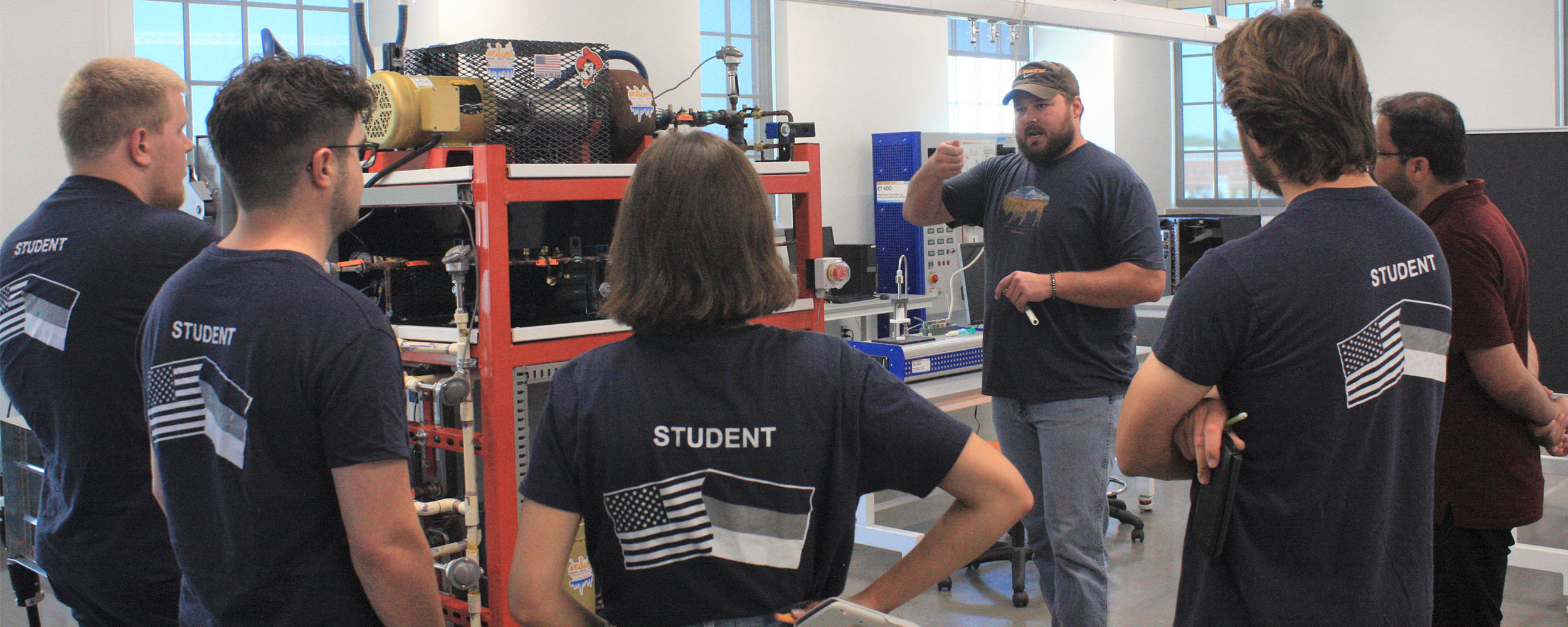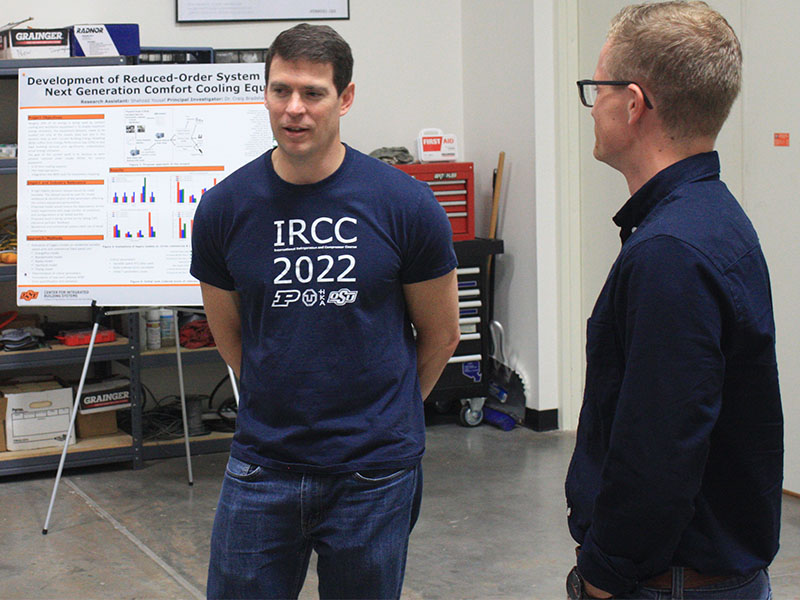
CEAT hosts IRCC course for the first time
Wednesday, August 31, 2022
Media Contact: Kristi Wheeler | Manager, CEAT Marketing and Communications | 405-744-5831 | kristi.wheeler@okstate.edu
Oklahoma State University’s College of Engineering, Architecture and Technology (CEAT) recently hosted the second residential week of the International Refrigeration and Compressor Course (IRCC).
The IRCC is a partnership between two U.S. universities and two German universities to teach advanced refrigeration and compression topics along with an international experience. The two U.S. universities — OSU and Purdue University — worked closely with the Technische Universität Dresden (TU Dresden) and the Hochschule (University of Applied Sciences) in Karlsruhe to recruit students for the course.
It is a summer course of 18 students and four instructors. There are two, in-person residential weeks, the first was in May in Germany and the second in August in Stillwater.
OSU has been involved with the partnership over the last three years. However, travel in previous years for the residential weeks was limited due to the pandemic. Dr. Craig Bradshaw — mechanical and aerospace engineering (MAE) faculty, director of the Center for Integrated Building Systems (CIBS) and OSU’s IRCC instructor — said traveling has greatly impacted the students’ experience in the course.
“The difference between doing it virtually, and actually spending that week in Germany was night and day,” Bradshaw said. “The cultural exchange was incredible. The student feedback was very positive even when the course was virtual, but now I have heard nothing but, ‘This is the best course I've ever taken,' from the students.”
Residential weeks allow the students to meet each other and spend time in both countries. The summer began with the U.S. students spending the first residential week in Germany where they visited Dresden and Karlsruhe. Students attended lectures, learned from the engineers at Bitzer’s Schaufler Academy, completed lab practicals and got to know their classmates at different social events.
“One thing that's pretty unique about the two universities we partner with is TU Dresden is in old East Germany and Hochschule Karlsruhe is in Western Germany,” Bradshaw said. “From one university to the next, they're quite different in how they function and operate. It was wonderful for the students to experience this.”
Students were also assigned a partner to work with virtually over the summer. Each U.S. student was paired with a student from Germany. Amjid Khan, a doctoral student studying mechanical engineering, worked with Tobias Walter who is a student at Hochschule Karlsruhe.
“One of the advantages of the IRCC joint project is students get to know the working and research culture of both countries,” Khan said. “In our weekly meetings, we used to discuss our research project and the cultural values and beauty of the U.S. and Germany. It helped us understand how diverse the research cultures are and how it varies from one research environment to another.”
Each set of partners was assigned a design-based project where they were responsible for developing a system and determining its performance. Khan and Walter were assigned the design of an indirect ice slurry storage system.

“It's fun to see different students interacting in a way that is sort of surprising,” Bradshaw said. “You wouldn't necessarily expect them to come from very different backgrounds and different parts of the world. They suddenly strike up these friendships and that's really beautiful to see.”
CEAT hosted the second residential week, which took place during the final week of the course. Students had the opportunity to get to know “Cowboy culture” with an action-packed schedule.
The class attended a Tulsa Drillers baseball game, spent a day learning from the engineers at AAON's Norman Asbjornson Innovation Center in Tulsa and spent a significant amount of time in the research labs both in ENDEAVOR and the Advanced Technology Research Center on the Stillwater campus. The course wrapped up with each group completing their project presentations.
“I'm hopeful that they leave with a very different appreciation for how other people think and how different cultures operate, and that it gives them a different perspective on collaborative relationships moving forward,” Bradshaw said. “I'm also hopeful that a different perspective leads to a deeper appreciation for how small the differences among us really are.”
The IRCC course gives students the opportunity to visit German state-of-the-art research labs and receive firsthand experience on small-scale refrigeration and air conditioning systems. Khan describes his experience with the course as a “lifelong learning experience.”
“It gives the students the opportunity to explore a new research environment, new culture, new traditions and a totally different infrastructure. It’s also a great opportunity to explore other European countries,” Khan said. “I am very thankful for MAE and specifically Dr. Bradshaw for providing us with such a great opportunity.”
Story By: Bailey Sisk | basisk@okstate.edu
